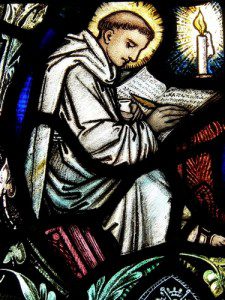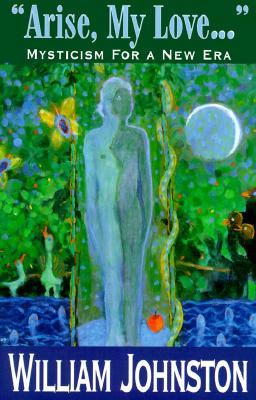
In his wonderful book about the present and future of Christian mysticism, “Arise, My Love…”, author William Johnston, SJ tells a charming study about one of his brother Jesuits, Hugo Enomiya-Lassalle, who made an arduous journey to Thailand to meet with a renowned Buddhist teacher called Buddhadasa. Like Johnston, Enomiya-Lassalle was engaged in Buddhist-Catholic dialogue, so a meeting like this would have been significant for his work.
After arriving in Bangkok and riding on a rickety old bus in stifling heat, the priest finally arrived at the temple where Buddhadasa lived — only to learn that the renowned master was about to embark on a pilgrimage of his own, and so he only had a precious few minutes to meet with the Jesuit.
In their brief encounter, Buddhadasa made this comment:
Christians would get enlightenment if they knew how to read their own scriptures.
Johnston recounts this story because he agrees with Buddhadasa. And so do I.
Re-Learning to Read Scripture
Johnston goes on to say:
We Christians must re-learn how to read our scriptures. While retaining great esteem for scholarship, we must realize that scholarship alone will not bring us to enlightenment. Scholarship alone will not bring us to an understanding of the evangelists. Scholarship alone will not bring us to an understanding of the words and actions of Jesus. For here we are dealing with mystery.
Therein lies the heart of this issue that we face. For almost two hundred years now, western Christianity has benefited from a historical-critical method of scholarship that has revealed insight into the social, political, philosophical, and psychological dimensions of the writings in the Bible. Our knowledge and understanding of Biblical texts has grown tremendously. But it has come with a cost.
Too many of us — including our clergy and religious leaders — have lost the ability to read the Bible with an open heart and a contemplative mind. We’ve substituted a scholarly approach to scripture for the older way of reading the text with the eyes of faith.
This is not an either-or issue. But in order to find enlightenment (or a word I prefer, illumination) in the words of scripture, we have to re-learn how to read with the eyes of faith, without abandoning the knowledge afforded by scholarship.
Another quote from William Johnston:
One who would know the Jesus of history must search not only for knowledge that comes from study but also for wisdom that comes from prayer.

Which is to say, one who would receive the gift of contemplative illumination (or “enlightenment”) needs to balance an academic approach to scripture with a deeply prayerful encounter with the text.
Reading the Bible Prayerfully
Okay, then, so how do we do this?
For beginners, there are two key steps: praying the Daily Office, and learning to practice Lectio Divina. The hyperlinks take you to previous blog posts I have written on each of these practices.
Of course, when I say “for beginners,” that doesn’t mean that eventually we move beyond these foundational practices. These are practices for beginners at every level of spiritual practice.
The Daily Office, which is drawn largely from scripture (particularly the Psalms and various canticles), is an invitation to allow the Bible to become the foundation of our prayer. Over time, praying the Office integrates scripture and prayer into the fabric of our ongoing lives. It familiarizes us with the texture and resonance of the Biblical texts, and invites us into a world-view where prayer is normative and trust in God shapes the contours of the praying persons’ lives.
Lectio Divina (Latin for “sacred reading”) begins with a gesture of faith: faith that God longs to meet us, and will use the words of scripture to facilitate that encounter. Lectio is a four-step process: reading a passage from the Bible, reflecting on it, praying about it, and then resting in contemplative silence as a final moment of response.
It has become fashionable to apply the “lectio process” of reading, reflecting, responding and resting to others texts beside the Bible and even to art and nature. I think this is helpful insofar as it invites us to be open to God encountering us at any place or time in our lives. But I believe primacy of place should be given to the practice of lectio with the Bible. That’s how lectio was developed, after all: as a technique for reading the Bible prayerfully. So engaging in a regular practice of Biblical Lectio Divina will go far in fostering “the wisdom that comes from prayer.”
Once again, note that praying the Daily Office or practicing Lectio Divina is not a substitute for a grounded, scholarly approach to reading the Bible. We need a both-and approach to the sacred text.
So back to Buddhadasa. If we engage in prayerful practices like Lectio Divina or praying the Divine Office, does that guarantee we will have become enlightened? If what you mean by “enlightenment” is some sort of extraordinary or supernatural experience, I would say that God’s grace would almost always prevent that from happening! Listen to mystics throughout the Christian tradition, who counsel against the temptation of reducing the encounter with God to some sort of experience.
The illumination that comes from prayer and scripture is both mystical (hidden from ordinary consciousness) and transfigurative (it manifests not so much in our feelings or awareness but in how we conduct our lives).
In other words, practice Lectio and pray the Office. Do it faithfully, prayerfully, and with a generous and listening heart, for 6 months or a year or more. It might feel like “nothing is happening” but keep doing it anyway. And then one day, if your experience is anything like mine, one day you will notice that you are looking through a new pair of eyes, illuminated by a heart that is slowly being formed and reformed into the image and likeness of God, which is to say the image and likeness of Love.
And then you will begin to understand just what Buddhadasa was trying to tell us Christians.
Enjoy reading this blog?
Click here to become a patron.














